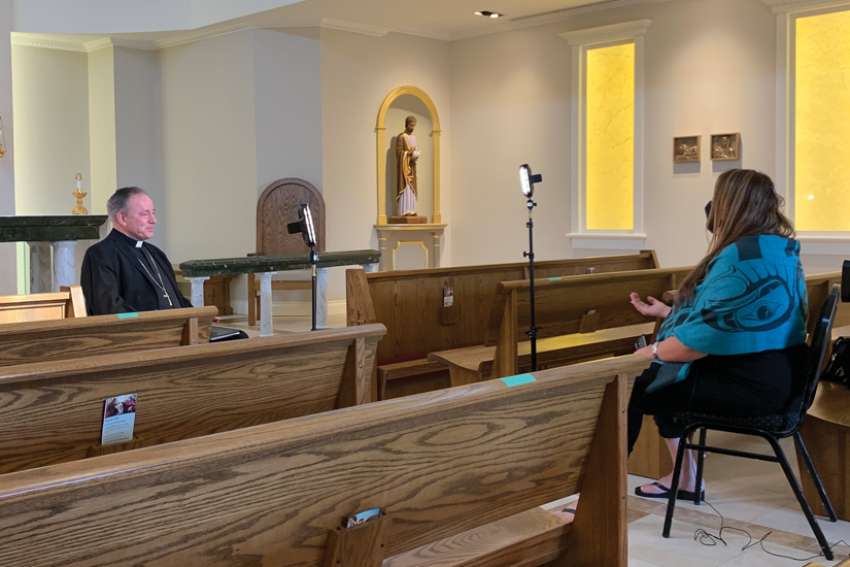Speaking with Tina House of APTN News, Miller said he was “very sorry” and wanted to apologize “because of the harm that in the name of the Church that I love and serve, there were people … that betrayed your trust.”
The abuse that occurred at residential schools “should not have happened to you,” said the archbishop. “I want to listen to your story. I want to hear you. I want to accompany you. In the ways that you tell me, I want to be able to build and repair my relationship with you. I will wait for you to tell me what you want.”
Miller released a public apology to survivors and families a week after the Tk’emlúps te Secwépemc First Nation announced they had discovered the remains of 215 children on the site of a former residential school in Kamloops.
The archbishop included five promises to First Nations people, including an offer to pay for mental health and counselling services and to help First Nations retrieve and honour their lost community members in the ways they deem fit.
While he’s ready to act, he told APTN he wants any attempt at healing to be Indigenous-led.
“I don’t want to pretend falsely that I can really understand exactly all your issues. You have to tell me, so I can grasp at least a little of what you went through.”
He also pledged to be transparent with all archdiocesan records pertaining to the Kamloops residential school, which were released to the Truth and Reconciliation Commission in 2013.
The Oblates of Mary Immaculate and Sisters of St. Ann would also have their own records and have shown willingness to be transparent, he said.
There are still many unanswered questions about what exactly went on in Kamloops, such as how the 215 died, and why they were buried there.
The Tk’emlúps te Secwépemc First Nation issued an update on the investigation June 4, saying since the initial findings they have been meeting with First Nations leadership to grieve together and plan the best way forward.
The results of the investigation, originally expected mid-June, are now anticipated at the end of the month.
James Borkowski, the archbishop’s delegate for operations, urged people to read the reports issued by the Truth and Reconciliation Commission to come to a better understanding of what truly went on at residential schools.
Meanwhile, there are efforts to make publicly available a 2017 documentary titled In the Spirit of Reconciliation, which features the lived experiences and stories of Dene residential school survivors in the Northwest Territories.
Fr. Larry Lynn, who created the film, hopes it will be offered with today’s context and as part of a broader framework within the Church toward reconciliation.


